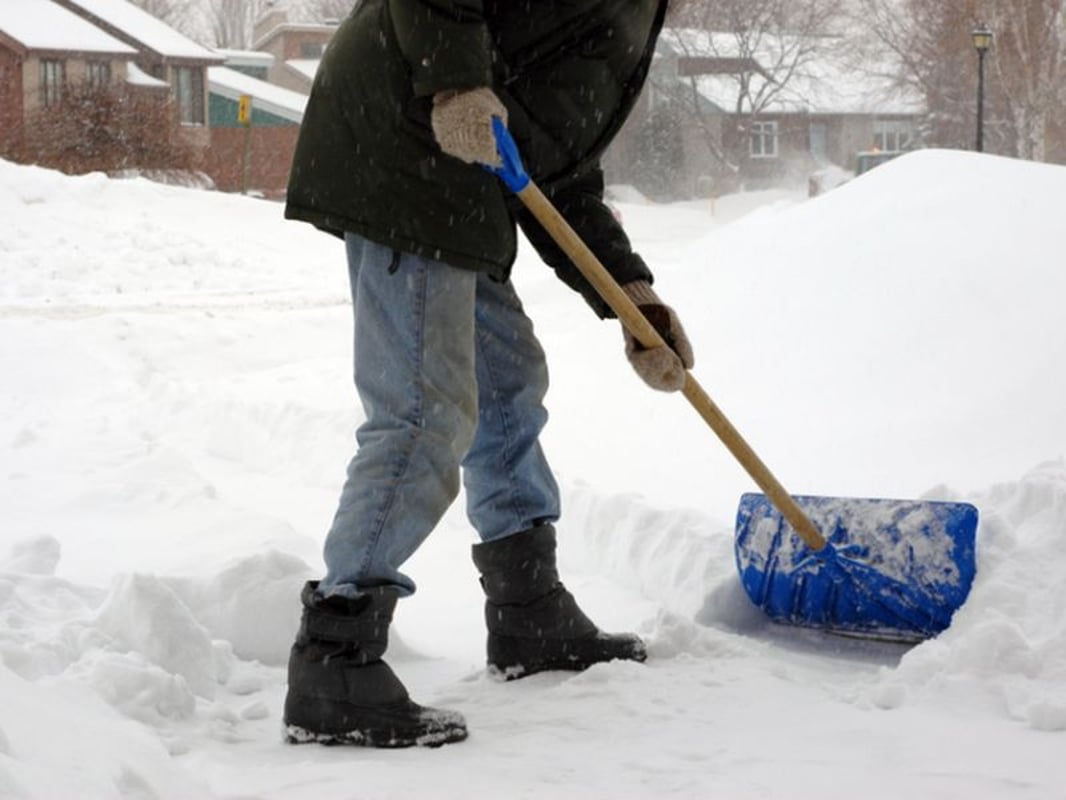Shoveling Snow Is a Heart Hazard: Protect Yourself

FRIDAY, Dec. 16, 2022 (HealthDay News) -- As yet another winter blizzard barrels down on the U.S. East Coast, the the American Heart Association (AHA) is cautioning people to take care when shoveling snow, since the exertion and the cold can cause serious heart problems.
Many people, especially those who don't exercise regularly, may face an increased risk of a heart attack or sudden cardiac arrest after shoveling heavy snow, according to the AHA. Even using a snowblower carries risk.
"Shoveling a little snow off your sidewalk may not seem like hard work," said AHA volunteer Barry Franklin, a professor of internal medicine at Oakland University William Beaumont School of Medicine in Royal Oak, Mich. “However, the strain of heavy snow shoveling may be as or even more demanding on the heart than taking a treadmill stress test, according to research we've conducted."
Franklin has studied the topic extensively, finding that hundreds of people die in the United States every year during or just after snow removal.
"For example, after only two minutes of snow shoveling, study participants' heart rates exceeded 85% of maximal heart rate, which is a level more commonly expected during intense aerobic exercise testing," Franklin said in an AHA news release. "The impact is hardest on those people who are least fit."
A Canadian study conducted a few years ago found men, but not women, had an increased risk of heart attack after a snowfall.
Compared to no snowfall, a heavy snow -- about 7 to 8 inches -- was associated with 16% higher odds of men being hospitalized with a heart attack. It was also associated with a 34% increase in the chance of men dying from a heart attack.
The cold is part of the problem. Cold temperatures may increase blood pressure while constricting the coronary arteries. Add to that a higher heart rate from the extra physical effort and risks mount.
Some studies also show risks with snowblowers, because the exertion of pushing one can quickly raise heart rate and blood pressure.
"The impact of snow removal is especially concerning for people who already have cardiovascular risks like a sedentary lifestyle or obesity, being a current or former smoker, having diabetes, high cholesterol or high blood pressure, as well as people who have had a heart attack or stroke," Franklin said. "People with these characteristics and those who have had bypass surgery or coronary angioplasty simply should not be shoveling snow."
Be aware of the dangers, be prepared and take it easy, including taking short breaks, Franklin advised.
For those who are relatively healthy, pushing snow is better than lifting and throwing it.
The AHA recommends everyone learn the common signs of heart trouble. If you experience chest pain or pressure, lightheadedness, heart palpitations or irregular heart rhythms, stop the activity immediately.
Call 911 if symptoms don't subside shortly after you stop shoveling or snowblowing.
Call for help and start hands-only CPR if you see someone collapse and they are unresponsive with no pulse.
More information
The U.S. Centers for Disease Control and Prevention has more on heart attack risk and recovery.
SOURCE: American Heart Association, news release, Dec. 15, 2022
Related Posts
Las esteticistas y las peluqueras quizá tengan un mayor riesgo de cáncer de ovario
MARTES, 11 de julio de 2023 (HealthDay News) -- Cuando piensa en las personas...
Two Doses of BNT162b2 Vaccine Protect Against MIS-C
TUESDAY, Jan. 11, 2022 (HealthDay News) -- Receipt of two doses of the...
Twelve Symptoms Contribute to Postacute Sequelae of SARS-CoV-2
FRIDAY, June 2, 2023 (HealthDay News) -- A group of symptoms has been identified...
Johnson & Johnson Agrees to $8.9 Billion Settlement in Talcum Powder Lawsuit
WEDNESDAY, April 5, 2023 (HealthDay News) -- Tens of thousands of people suing...
